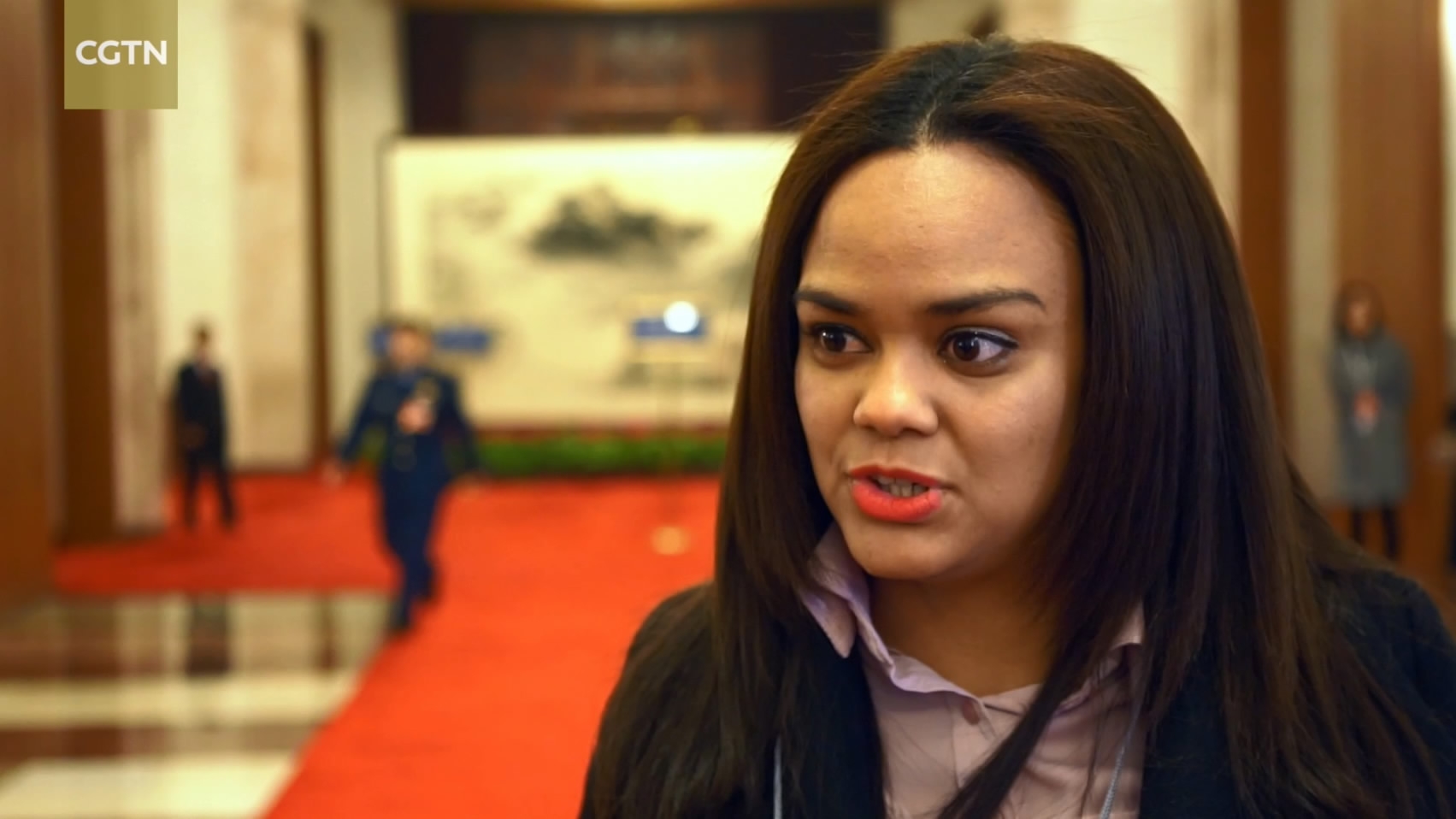Among the deputies, journalists and other observers, a number of foreign diplomats have been following proceedings at the Great Hall of the People these last two weeks, as China’s legislators and political advisers have convened to decide the path the country should take over the next few years.
So what is their take on this year’s Two Sessions and the road ahead?
Growth and prosperity
The whole world is looking at China to be the driver of prosperity, the driver of the growth of the economy
- UAE Ambassador Ali Obaid Al Dhaheri
As the world’s second largest economy, most foreign diplomats CGTN spoke to highlighted the need for China to be a champion of globalization, even as some countries revert to protectionism.

Container Terminal in Nansha Free Trade Zone on April 18, 2016 in Guangzhou, China /VCG Photo
Container Terminal in Nansha Free Trade Zone on April 18, 2016 in Guangzhou, China /VCG Photo
“We are in a particular moment in the world and China is one of the leaders of the open market process against other processes which go in different directions,” said Ignacio Vargas from the embassy of Peru.
Whether China can lead the way for “countries that want an open economy” was a primary concern for his country, he said.
Domestically, China’s stated goal of moving from a high-speed economy to a high-quality one also attracted attention.
“China is restructuring its own economy by relying less on exports, reforming SOEs (state-owned enterprises), reforming the digital technology,” Thailand’s ambassador to China, Piriya Khempon, told CGTN.
“If China can do this, it will be interesting for the whole world to look at because China is a big country… Shifting from an export-led economy into an innovation-led economy is quite a big event.”
Xi’s leadership
The possibility to elect the president of China more than two times, it’s a historical step for China
- Ignacio Vargas, Embassy of Peru
With many countries looking to China to guide them, President Xi Jinping’s reinforced position as the country's top leader was seen as a positive sign. On Saturday, he was re-elected president of China and chairman of the Central Military Commission.
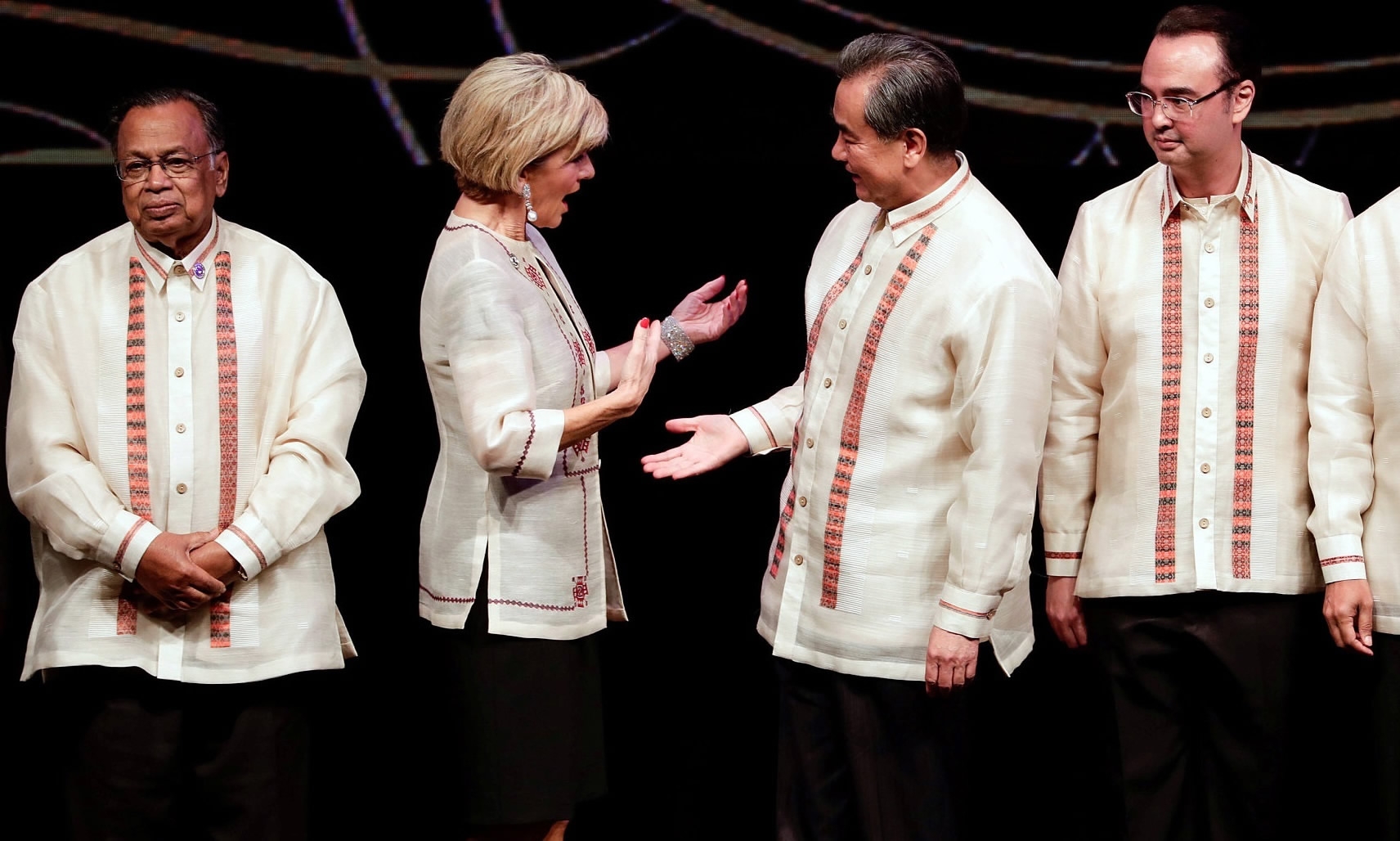
China's Foreign Minister Wang Yi speaks to Australia's Foreign Minister Julie Bishop at an Association of South East Asian Nations (ASEAN) Foreign Ministers’ Meeting in Manila, Philippines on August 6, 2017. /VCG Photo
China's Foreign Minister Wang Yi speaks to Australia's Foreign Minister Julie Bishop at an Association of South East Asian Nations (ASEAN) Foreign Ministers’ Meeting in Manila, Philippines on August 6, 2017. /VCG Photo
“China’s global engagement with so many countries, and trade expansion and bilateral and also multilateral relationships: that is phenomenal. And for that, you require a pretty strong leadership with strong national backing and also international recognition,” noted Nasir Mahmood, head of external relations and legal affairs at the Asia-Pacific Space Cooperation Organization (APSCO), a Beijing-based inter-governmental organization.
“President Xi Jinping has both, at the national level and he is a praiseworthy leader in the global arena also.”
UAE Ambassador Ali Obaid Al Dhaheri agreed, welcoming the “strong signs of continuation” at the Two Sessions. “(For) the next five years and many years to come, (there) will be… stability of the economy, stability of the government, stability of the vision.”
A historic moment
This is an important and historic moment for China… a historical moment not only for China but for the whole world
- Yudith Sanchez Espinosa, Embassy of Cuba
Several of the diplomats CGTN interviewed were first-time attendees at the Two Sessions and excited to witness an event where China revised its constitution and elected new state leaders.
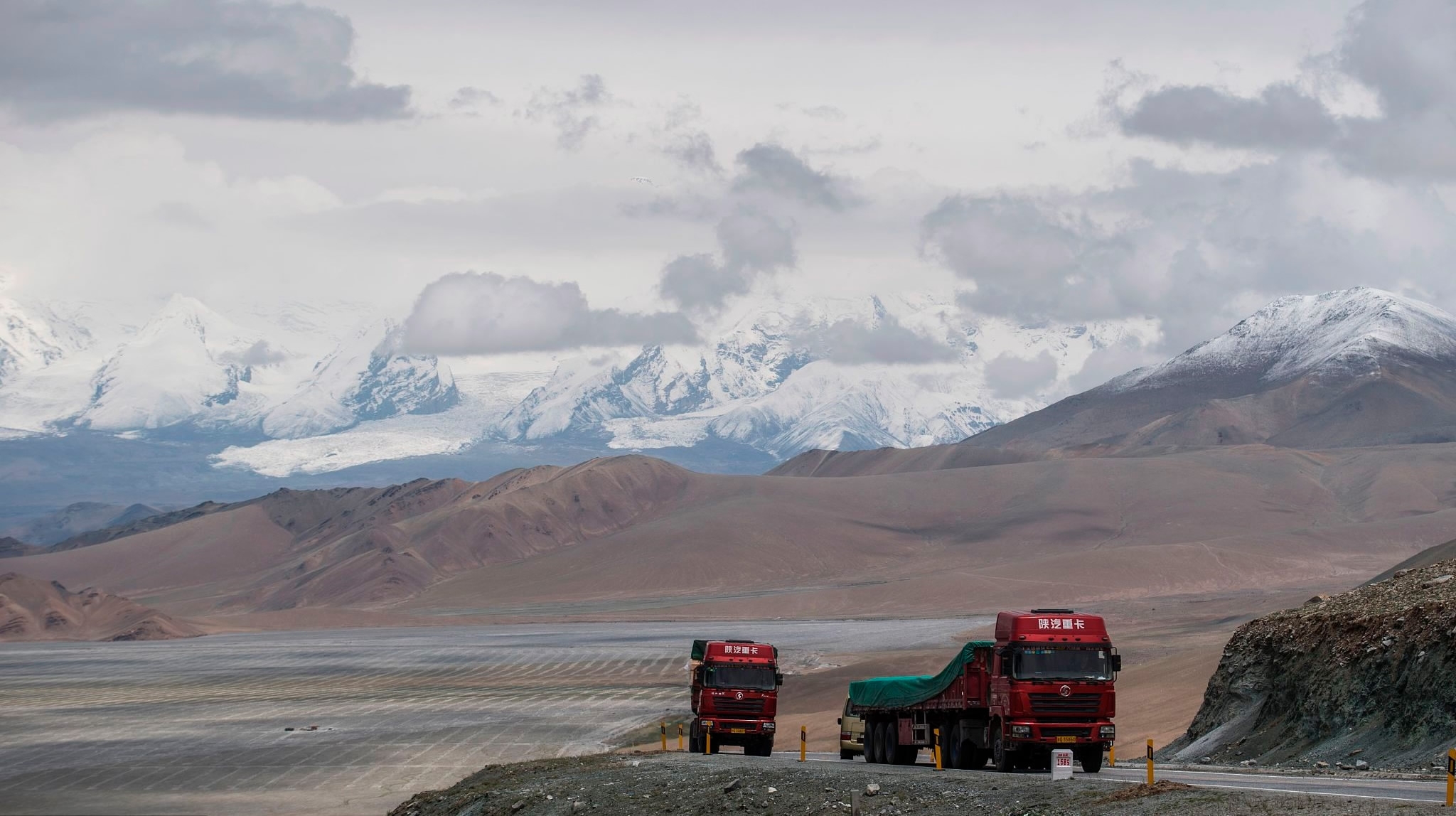
Trucks drive along the China-Pakistan Friendship Highway near Tashkurgan in China's western Xinjiang Uygur Autonomous Region on June 28, 2017. /VCG photo
Trucks drive along the China-Pakistan Friendship Highway near Tashkurgan in China's western Xinjiang Uygur Autonomous Region on June 28, 2017. /VCG photo
The word "historic" was repeated in several conversations.
“This is an event that the whole world is watching,” noted Thai Ambassador Piriya Khempon. “We are hoping to see some new policy guidelines issued for the future of China.”
Trade and international cooperation
We are the neighbor of China, whatever new policy is coming up we are looking forward to working together… cooperating for the region, for ASEAN as a whole.
- Piriya Khempon, Ambassador of Thailand
China has multiplied its international commitments over the past few years, launching the Belt and Road Initiative (BRI), pouring investments into Africa and boosting its peacekeeping contributions, while also increasing ties with regional and trade blocs like BRICS and ASEAN.
As far as Latin America, partners were hoping for a continued Chinese presence in their region, with Sanchez Espinosa predicting “a good future between friends… and we hope that our cooperation can be deepened.”
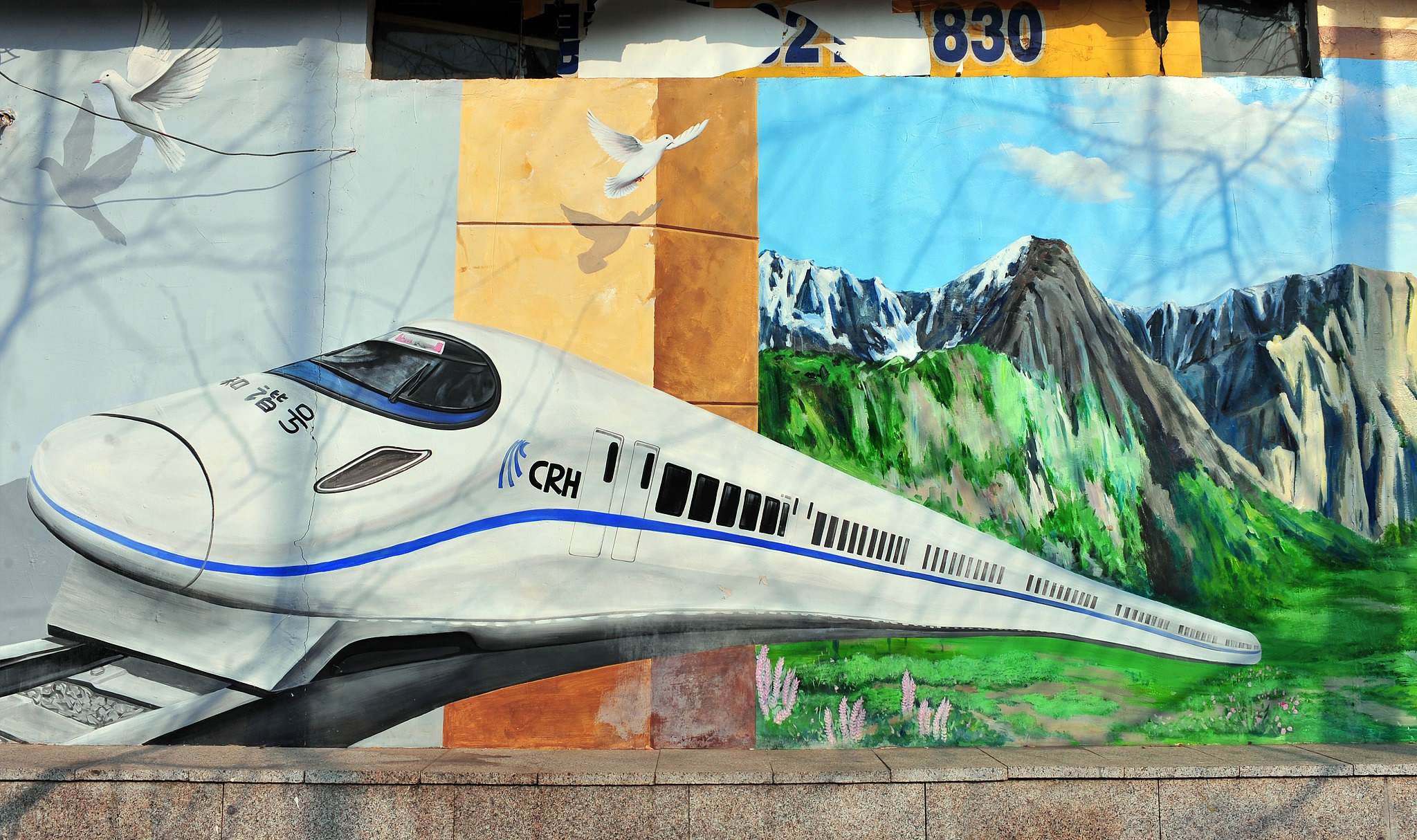
A wall painting promoting China's Belt and Road Initiative is seen on March 10, 2018, in Beijing. /VCG Photo
A wall painting promoting China's Belt and Road Initiative is seen on March 10, 2018, in Beijing. /VCG Photo
“We want to develop more technology. And we also need to strengthen our infrastructure in Latin America,” Vargas added, citing these two issues as Peru’s main motivations for joining the Belt and Road Initiative.
“China is a most important trade partner, so we are looking to maintain and to develop much more of our trade, and China is also very important as an investor. We have huge investments especially in mineral resources, so we are very interested in continuing that.”
Al Dhaheri noted that the UAE has been part of the BRI “from Day One because we believe in it.” The Initiative will offer prosperity “not only for China, it’s for the whole world,” he insisted.
A model for poverty alleviation
Not all minds were on trade and large-scale economic projects, however. For some diplomats, China’s actions in specific fields were of more interest.
Efforts to combat poverty alleviation – a key priority for China over the next two years – “are quite remarkable, they’re quite efficient,” said Thai Ambassador Piriya Khempon, who visited several Chinese provinces where such projects were being implemented.
“Translating the alleviation of poverty in China… is a very good model for the whole world to study,” he said.
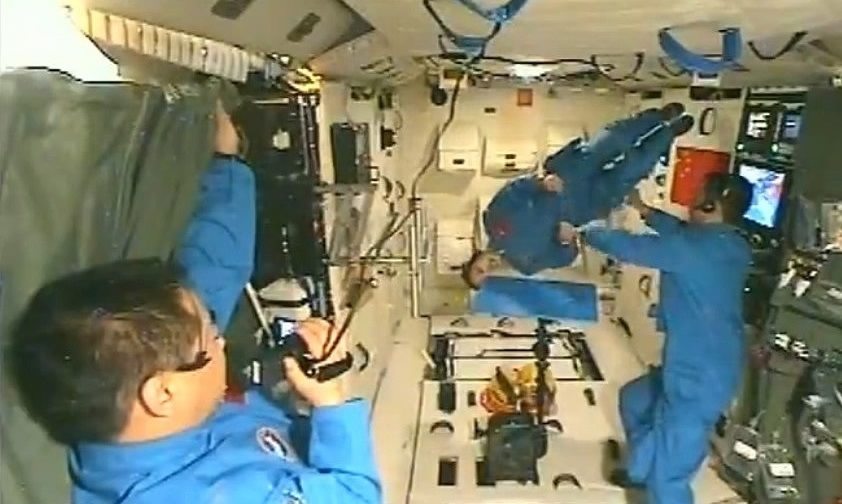
TV grab of Chinese astronauts on board the Tiangong-1 space lab on June 20, 2013. /VCG Photo
TV grab of Chinese astronauts on board the Tiangong-1 space lab on June 20, 2013. /VCG Photo
Even in space, partners were counting on Beijing to lead the way. China, which plans to have an international space station in orbit by 2022, has been helping to put in place space legislation with the United Nations and individual countries.
“China is a big player in the field of space and is also at the bilateral level providing so many services to many nations,” said Nasir Mahmood. “So China has a lot of responsibility.”
Much of the Two Sessions have focused on domestic issues and how decisions will impact the Chinese people in the near future. If any proof was needed, those diplomats attending the sessions in Beijing have shown that foreign capitals are closely scrutinizing the event.

